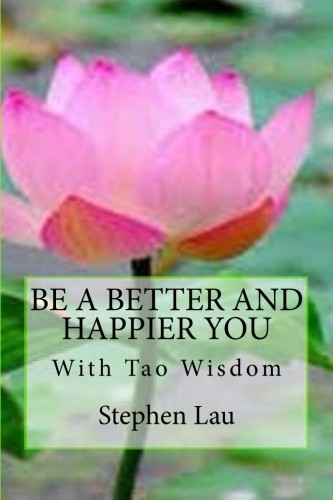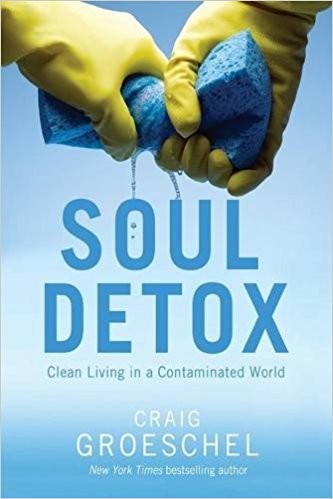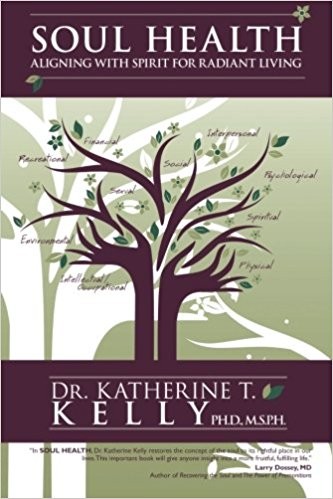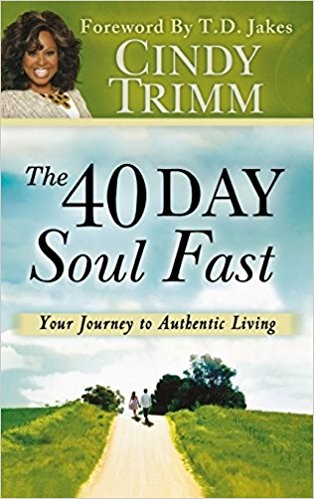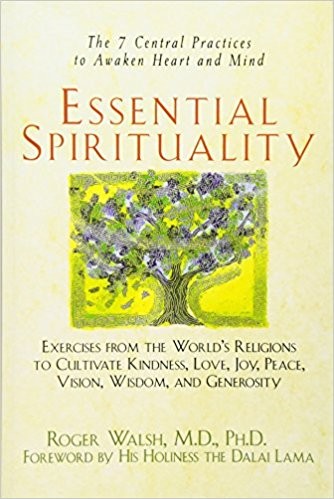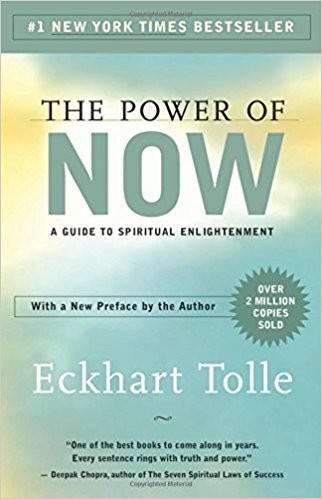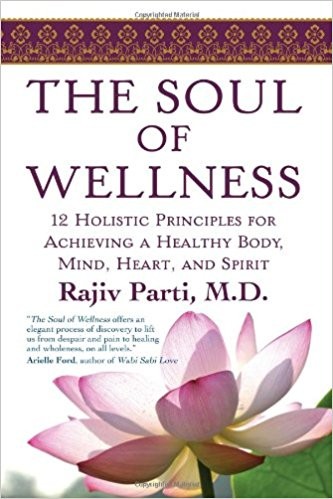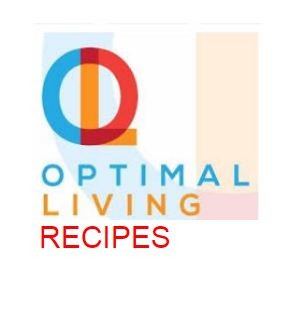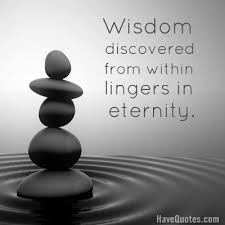
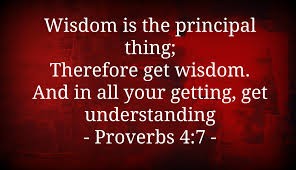

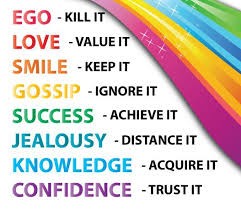



Wisdom in Living
Soul Wellness Recipes
Stephen Lau
Stephen Lau

The Soul's Relative Importance
How important is the soul in wellness wisdom? Its importance is only relative; that is, it depends on the individual.
This is the the truth and the reality: the SOUL should control the MIND, which controls the BODY; this is also the ideal. But the importance of the soul is relative to each individual.
In real life, this is often the scenario: the BODY (sinful desires, negative thoughts, and toxic emotions) adversely affects the MIND, which, in turn, changes its perspectives of the SOUL (this is how humans sear their souls).
Yes, ideally, the soul should dominate the mind, which then controls the body. That, however, would not happen unless and until the mind is willing to let it happen (the problem is that man has free will and freedom of choice).
The mind is not always the master of the body. The mind is made up of the conscious mind and the subconscious mind, both of which store information processed by the five senses of the body. The conscious mind voluntarily filters the processed information (that is, consciously remembers what it wants to remember, and forgets what it wants to forget), while the subconscious mind involuntarily absorbs all processed information irrespective of their importance or relevance (that is, it remembers and stored everything). But it is the subconscious mind that directs and controls the conscious mind (that is how the body controls the mind without the body being aware of it).
If the mind is controlled by the body in a negative way, the mind will not turn to the soul because the soul is spiritual while the body is physical; when the mind is preoccupied with the physical, it has no room for the spiritual. Therefore, only when the mind deliberately focuses on the soul, then the soul will control the mind. It is just that simple!
So, to attain the ideal soul-mind-body control and connection, it must begin with the mind first. That is, the mind must have the intent to seek deliberately and diligently the soul rather than the body. If the soul controls the mind (that is, when the mind willingly embraces the soul), then the mind will know how to control the body with the help of the soul; in that way, the body will do less harm to the mind, which will then be more willingly controlled by the soul.
Seek the soul, and you shall find it! Remember, the soul will never voluntarily control the mind, unless the mind is willing to be controlled. So soul wellness all begins with the mind first -- the intent to be controlled by the soul!
How important is the soul to you? Or, how willingly and passionately you seek the soul?
Understanding Spirituality
Man is born with a spirit: a conscience to know what is right and wrong, as well as a desire to connect with his Creator (or God’s desire to be connected with man).
In the course of life, man may disregard the human conscience when he does evil, or may even suppress the innate desire to know his Creator when he purposely turns away from Him.
On the other hand, if an individual does everything according to his or her own conscience, that individual may still be considered “spiritual” even without displaying a desire to know the Creator. That, however, is never easy because, without the help of the soul, the mind may be easily controlled by the body.
What is spirituality?
Spirituality, as opposed to materiality, is like the wind, invisible but palpable. Immeasurable and lasting, it provides guidance, direction, and understanding to the mind. Spirituality takes the form of love, joy, and peace, and it is often expressed in human action and behavior. Materiality, on the other hand, is always visible, measurable, and transient. Humans need both spirituality and materiality: the former to understand the self, and the latter to understand the world and the universe.
Spirituality, at a deeper level, means a desire to have a personal relationship with God. How do you discover your own spirituality?
According to St. Augustine, the Bishop of Hippo (354-430 A.D.), in life there are certain things we do not believe unless we understand them, and there are other things that we do not understand unless we believe them first. According to St. Augustine, believing is not opposed to understanding, nor is it independent of understanding. His famous “faith seeking understanding” is a conscious act of believing first, without which unbelief closes the door to further understanding. Simply put, you must have the intent to seek and to believe first. Once you do that, the door of understanding will be opened to you. Spirituality will feed and nourish your soul, giving your mind guidance to control your body.
Compassion and Loving-Kindness
Compassion and loving-kindness often go hand in hand, and are expressed in human behavior.
Compassion is the capability to feel what another individual feels and experiences, especially negative feelings and emotions. Loving-kindness originates from the Hebrew, meaning the love and kindness of God freely given to man; it is an act of kindness, motivated by love, and freely expressed to your fellow human beings.
Develop the mindset for compassion and loving-kindness, which should become a habit or second nature to you.
Showing compassion and loving-kindness is not about “an eye for an eye”, nor is it about your “rights” as an individual. It is an act of compassion and kindness you consciously express to another individual simply because that individual has the same desire to be happy and to avoid suffering, just like yourself. Accordingly, your response is a reflection of your love for that individual, irrespective of the behavior of that individual towards you.
Be grateful: gratitude makes you look at the behavior of another individual with a different perspective, such as with more tolerance and greater understanding.
Be congenial: always smile.
Be positive: always see the good in others, always giving them the benefit of the doubt.
Be forgiving and forgetting: let go of any remaining grudge or resentment.
Be reflective in response: don't speculate or jump to any conclusion about the comment or behavior of an individual.
Develop the mindset for compassion and loving-kindness.
Generosity
Generosity does not necessarily have to do with spending money. It is not solely based on your economic status or how much money you have, but on your pure intentions of looking out for society's common good and giving from the bottom of your heart. Generosity should reflect your passion to help others who are in need, or who are less fortunate than yourself.
Be generous with your time, your labor, and with what you have. Show generosity to others around you. Form the habit of giving without expecting any credit, recognition, or just anything in return for your generous gesture. If you give with the intent of receiving, you are a “user” and not a real “giver.”
Giving generosity is also spiritual giving because God is giving. He gave man life itself (Acts 17:25), and, most importantly, He gave His only Son for human salvation.
Simplicity Living
Human life is full of clutters from the past, both emotional and material. Clutters are stumbling blocks to spirituality growth for the soul. Attachment to clutters crashes the soul.
Practice simplicity in your everyday living: a simple lifestyle, a simple meal, and a simple wardrobe. After identifying the most important things in your life, you simply simplify your life and eliminate everything else that is not relevant or necessary.
Simplicity in life accelerates the process of letting go, which promotes the wellness of the soul. Simplicity enables you to live in the present, instead of living in the past, or projecting those past experiences into the future in the form of desires or expectations. Remember, only the present is real. Living in the present gives you presence of mind, which is mental awareness, without which your mind easily gives in to the desires and wants of the body. Let the soul control your mind, and not your body controlling your mind. Soul wellness originates from the intent of the mind. Simplicity cherishes and nourishes that intent to be spiritual to become closer to the Creator.
Soul Toxins
You are living in a toxic world full of toxins damaging to wellness of the body, the mind, and ultimately the soul. Wellness wisdom requires you to be vigilant at all times, so that you not only separate the truths from the myths, but also know what you are fighting for and against.
There are weapons you can use to help you in the struggle and fight against the onslaught of soul toxins: clarity of mind; faith in yourself and the Creator, who not only wants you to win in the battle but also supplies you with the ammunition through prayers and His Word.
The first hurdle you have to overcome is to be honest with yourself. Your ego-self often stands in the way, not letting you see who you really are and what you have really become. Ask yourself the following questions:
Do I have chronic negative thoughts about myself, others, and life in general?
Do I have fear about the present and the future, as well as the unknown and the unthinkable?
Am I critical about anything and everything that crosses my path?
Am I consumed with desire and discontent?
Boldly face your honest answers with more soul-searching questions that demand more thought-provocative answers.
Your thoughts are critical to your soul wellness; they are made up of words. Remember, words can be creative or destructive, and they are present in what you say or what you hear -- they become the substance of your thoughts, which are involuntarily stored in your subconscious mind that controls and directs your conscious mind.
Toxic Thoughts for Toxic Souls
Attachment is a toxic thought that connects material things to the ego-self (label-oriented lifestyle), as well as relates time more often to the past and the future than to the present (a compulsive mind).
Attachment to the ego-self, to material things, and to time is the source of human woes, which impact the body and the mind, and ultimately contaminate the soul.
The bottom line: Let go of the ego-self (the gravitational center of attachment), and live in the present with no expectation of the future.
Bitterness is a common and rampant toxic thought that batters the mind and bruises the soul. Bitterness cherishes anger, which turns into rage, seeking revenge. Bitterness ultimately devastates the soul.
The bottom line: Do not justify your bitterness. The hurt never justifies the bitterness. Any desire for justice (making it personal) stains and blemishes the soul.
”Make every effort to live in peace with everyone and to be holy; without holiness no one will see the Lord. See to it that no one falls short of the grace of God and that no bitter root grows up to cause trouble and defile many.” (Hebrews 12:14-15)
Envy is another toxic thought that tarnishes the soul. Envy is tantamount to rejecting your own blessings because you are counting the blessings of others rather than yours.
Envy is about comparing yourself with others. In life, it is important to believe in yourself. If you don’t believe in yourself, how can you believe in your Creator? One of the obstacles to believing in yourself is comparing yourself with others. You are who you are; don't try to be someone else that you are not.
Envy leads to craving: "wanting more and more" (greed) or "wanting more for less" (taking unfair advantage of others).
The bottom line: Be grateful for what you already have; rejoice with those who have more.
Fear is a a debilitating toxic thought for the toxic soul. This toxic thought is manifested in many forms, such as fear of an outcome (disappointment), fear of loss (refusal to let go), fear of the future (lack of self-belief, or faith in the Creator), and fear of rejection (non-acceptance by others).
Jesus said: "Can any one of you by worrying add a single hour to your life?" (Matthew 6:27)
"Without faith it is impossible to please God." (Hebrews 11:6)
The bottom line: Purge all "what-ifs" from your mind; nobody knows the future anyway.
Stephen Lau
Copyright © Stephen Lau
How important is the soul in wellness wisdom? Its importance is only relative; that is, it depends on the individual.
This is the the truth and the reality: the SOUL should control the MIND, which controls the BODY; this is also the ideal. But the importance of the soul is relative to each individual.
In real life, this is often the scenario: the BODY (sinful desires, negative thoughts, and toxic emotions) adversely affects the MIND, which, in turn, changes its perspectives of the SOUL (this is how humans sear their souls).
Yes, ideally, the soul should dominate the mind, which then controls the body. That, however, would not happen unless and until the mind is willing to let it happen (the problem is that man has free will and freedom of choice).
The mind is not always the master of the body. The mind is made up of the conscious mind and the subconscious mind, both of which store information processed by the five senses of the body. The conscious mind voluntarily filters the processed information (that is, consciously remembers what it wants to remember, and forgets what it wants to forget), while the subconscious mind involuntarily absorbs all processed information irrespective of their importance or relevance (that is, it remembers and stored everything). But it is the subconscious mind that directs and controls the conscious mind (that is how the body controls the mind without the body being aware of it).
If the mind is controlled by the body in a negative way, the mind will not turn to the soul because the soul is spiritual while the body is physical; when the mind is preoccupied with the physical, it has no room for the spiritual. Therefore, only when the mind deliberately focuses on the soul, then the soul will control the mind. It is just that simple!
So, to attain the ideal soul-mind-body control and connection, it must begin with the mind first. That is, the mind must have the intent to seek deliberately and diligently the soul rather than the body. If the soul controls the mind (that is, when the mind willingly embraces the soul), then the mind will know how to control the body with the help of the soul; in that way, the body will do less harm to the mind, which will then be more willingly controlled by the soul.
Seek the soul, and you shall find it! Remember, the soul will never voluntarily control the mind, unless the mind is willing to be controlled. So soul wellness all begins with the mind first -- the intent to be controlled by the soul!
How important is the soul to you? Or, how willingly and passionately you seek the soul?
Understanding Spirituality
Man is born with a spirit: a conscience to know what is right and wrong, as well as a desire to connect with his Creator (or God’s desire to be connected with man).
In the course of life, man may disregard the human conscience when he does evil, or may even suppress the innate desire to know his Creator when he purposely turns away from Him.
On the other hand, if an individual does everything according to his or her own conscience, that individual may still be considered “spiritual” even without displaying a desire to know the Creator. That, however, is never easy because, without the help of the soul, the mind may be easily controlled by the body.
What is spirituality?
Spirituality, as opposed to materiality, is like the wind, invisible but palpable. Immeasurable and lasting, it provides guidance, direction, and understanding to the mind. Spirituality takes the form of love, joy, and peace, and it is often expressed in human action and behavior. Materiality, on the other hand, is always visible, measurable, and transient. Humans need both spirituality and materiality: the former to understand the self, and the latter to understand the world and the universe.
Spirituality, at a deeper level, means a desire to have a personal relationship with God. How do you discover your own spirituality?
According to St. Augustine, the Bishop of Hippo (354-430 A.D.), in life there are certain things we do not believe unless we understand them, and there are other things that we do not understand unless we believe them first. According to St. Augustine, believing is not opposed to understanding, nor is it independent of understanding. His famous “faith seeking understanding” is a conscious act of believing first, without which unbelief closes the door to further understanding. Simply put, you must have the intent to seek and to believe first. Once you do that, the door of understanding will be opened to you. Spirituality will feed and nourish your soul, giving your mind guidance to control your body.
Compassion and Loving-Kindness
Compassion and loving-kindness often go hand in hand, and are expressed in human behavior.
Compassion is the capability to feel what another individual feels and experiences, especially negative feelings and emotions. Loving-kindness originates from the Hebrew, meaning the love and kindness of God freely given to man; it is an act of kindness, motivated by love, and freely expressed to your fellow human beings.
Develop the mindset for compassion and loving-kindness, which should become a habit or second nature to you.
Showing compassion and loving-kindness is not about “an eye for an eye”, nor is it about your “rights” as an individual. It is an act of compassion and kindness you consciously express to another individual simply because that individual has the same desire to be happy and to avoid suffering, just like yourself. Accordingly, your response is a reflection of your love for that individual, irrespective of the behavior of that individual towards you.
Be grateful: gratitude makes you look at the behavior of another individual with a different perspective, such as with more tolerance and greater understanding.
Be congenial: always smile.
Be positive: always see the good in others, always giving them the benefit of the doubt.
Be forgiving and forgetting: let go of any remaining grudge or resentment.
Be reflective in response: don't speculate or jump to any conclusion about the comment or behavior of an individual.
Develop the mindset for compassion and loving-kindness.
Generosity
Generosity does not necessarily have to do with spending money. It is not solely based on your economic status or how much money you have, but on your pure intentions of looking out for society's common good and giving from the bottom of your heart. Generosity should reflect your passion to help others who are in need, or who are less fortunate than yourself.
Be generous with your time, your labor, and with what you have. Show generosity to others around you. Form the habit of giving without expecting any credit, recognition, or just anything in return for your generous gesture. If you give with the intent of receiving, you are a “user” and not a real “giver.”
Giving generosity is also spiritual giving because God is giving. He gave man life itself (Acts 17:25), and, most importantly, He gave His only Son for human salvation.
Simplicity Living
Human life is full of clutters from the past, both emotional and material. Clutters are stumbling blocks to spirituality growth for the soul. Attachment to clutters crashes the soul.
Practice simplicity in your everyday living: a simple lifestyle, a simple meal, and a simple wardrobe. After identifying the most important things in your life, you simply simplify your life and eliminate everything else that is not relevant or necessary.
Simplicity in life accelerates the process of letting go, which promotes the wellness of the soul. Simplicity enables you to live in the present, instead of living in the past, or projecting those past experiences into the future in the form of desires or expectations. Remember, only the present is real. Living in the present gives you presence of mind, which is mental awareness, without which your mind easily gives in to the desires and wants of the body. Let the soul control your mind, and not your body controlling your mind. Soul wellness originates from the intent of the mind. Simplicity cherishes and nourishes that intent to be spiritual to become closer to the Creator.
Soul Toxins
You are living in a toxic world full of toxins damaging to wellness of the body, the mind, and ultimately the soul. Wellness wisdom requires you to be vigilant at all times, so that you not only separate the truths from the myths, but also know what you are fighting for and against.
There are weapons you can use to help you in the struggle and fight against the onslaught of soul toxins: clarity of mind; faith in yourself and the Creator, who not only wants you to win in the battle but also supplies you with the ammunition through prayers and His Word.
The first hurdle you have to overcome is to be honest with yourself. Your ego-self often stands in the way, not letting you see who you really are and what you have really become. Ask yourself the following questions:
Do I have chronic negative thoughts about myself, others, and life in general?
Do I have fear about the present and the future, as well as the unknown and the unthinkable?
Am I critical about anything and everything that crosses my path?
Am I consumed with desire and discontent?
Boldly face your honest answers with more soul-searching questions that demand more thought-provocative answers.
Your thoughts are critical to your soul wellness; they are made up of words. Remember, words can be creative or destructive, and they are present in what you say or what you hear -- they become the substance of your thoughts, which are involuntarily stored in your subconscious mind that controls and directs your conscious mind.
Toxic Thoughts for Toxic Souls
Attachment is a toxic thought that connects material things to the ego-self (label-oriented lifestyle), as well as relates time more often to the past and the future than to the present (a compulsive mind).
Attachment to the ego-self, to material things, and to time is the source of human woes, which impact the body and the mind, and ultimately contaminate the soul.
The bottom line: Let go of the ego-self (the gravitational center of attachment), and live in the present with no expectation of the future.
Bitterness is a common and rampant toxic thought that batters the mind and bruises the soul. Bitterness cherishes anger, which turns into rage, seeking revenge. Bitterness ultimately devastates the soul.
The bottom line: Do not justify your bitterness. The hurt never justifies the bitterness. Any desire for justice (making it personal) stains and blemishes the soul.
”Make every effort to live in peace with everyone and to be holy; without holiness no one will see the Lord. See to it that no one falls short of the grace of God and that no bitter root grows up to cause trouble and defile many.” (Hebrews 12:14-15)
Envy is another toxic thought that tarnishes the soul. Envy is tantamount to rejecting your own blessings because you are counting the blessings of others rather than yours.
Envy is about comparing yourself with others. In life, it is important to believe in yourself. If you don’t believe in yourself, how can you believe in your Creator? One of the obstacles to believing in yourself is comparing yourself with others. You are who you are; don't try to be someone else that you are not.
Envy leads to craving: "wanting more and more" (greed) or "wanting more for less" (taking unfair advantage of others).
The bottom line: Be grateful for what you already have; rejoice with those who have more.
Fear is a a debilitating toxic thought for the toxic soul. This toxic thought is manifested in many forms, such as fear of an outcome (disappointment), fear of loss (refusal to let go), fear of the future (lack of self-belief, or faith in the Creator), and fear of rejection (non-acceptance by others).
Jesus said: "Can any one of you by worrying add a single hour to your life?" (Matthew 6:27)
"Without faith it is impossible to please God." (Hebrews 11:6)
The bottom line: Purge all "what-ifs" from your mind; nobody knows the future anyway.
Stephen Lau
Copyright © Stephen Lau
Follow Pastor Groechel's advice on how to detox your soul of toxic thoughts of anger, bitterness, discontent, envy, hatred, and revenge


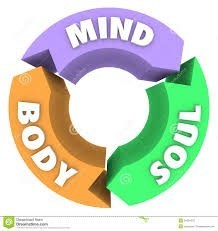

The soul is at the hub of all aspects of your health and well-being, providing you the roadmap to reaching optimal health—your soul health.
12 holistic principles to help you achieve wellness of the body, mind, heart, and soul!
Your journey to living as if everything is a miracle!
Learn how to live in the present, which is a gift, and that's why it is called "present."
